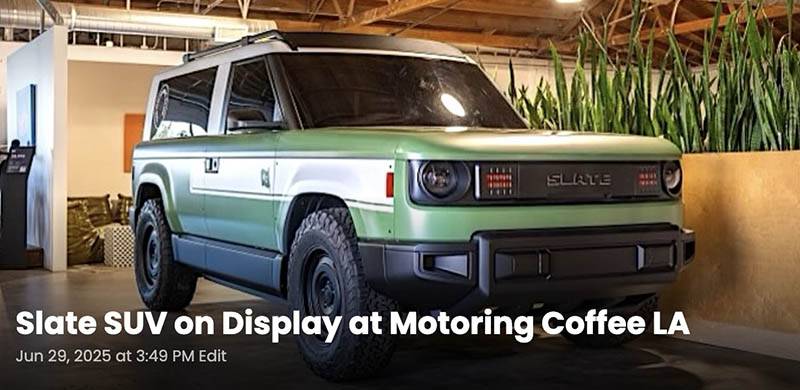slateya
Well-Known Member
- Thread starter
- #1
Slate is creating an ingenious way of tapping into some deep American cultural programming while fulfilling the goal of affordable transportation. The car=identity has somewhat faded but is still there and ready to roar back with DIY customization. Rumor has it traffic on the Slate Maker is very high.
Has anybody else read Clotaire Rapaille. I am sure Trisha Johnson knows his work and Chris Berman likely crossed paths at Chrysler.
ISBN: 0767920562
The Culture Code: An Ingenious Way To Understand Why People Around The World Live And Buy As They Do by Clotaire Rapaille examines how different cultures view products, events, and concepts. Rapaille argues each product makes a unique imprint on members of any given culture. This imprint can be described in only a few words. For example, Rapaille says the American code for cars is "Identity," while the German code for cars is "Engineering."
For the last thirty years, Rapaille, a cultural anthropologist, has helped international companies learn and understand these cultural codes by examining how consumers really feel about products. Rapaille worked with Chrysler to discover the code for Jeep. The American code for Jeep is "Horse," a go-anywhere vehicle. Based on this, Rapaille suggested replacing square headlights with round ones, because horses have round eyes. Luxury interiors weren't part of the code. The Jeep was then successfully marketed as a "horse" in America. In France and Germany, Jeeps were seen differently. People there associate them with the WWII liberation of Europe. Chrysler marketed Jeeps in Europe as symbols of freedom.
According to Rapaille, most cultural imprints occur by a very early age. In America, many people love peanut butter and jelly sandwiches, because they ate as children. People associated the sandwiches with care and attention from mom. In other cultures the sandwiches might not have been imprinted at all.
https://www.thefreelibrary.com/The+...o+Understand+Why+People+Around...-a0148858736
Has anybody else read Clotaire Rapaille. I am sure Trisha Johnson knows his work and Chris Berman likely crossed paths at Chrysler.
ISBN: 0767920562
The Culture Code: An Ingenious Way To Understand Why People Around The World Live And Buy As They Do by Clotaire Rapaille examines how different cultures view products, events, and concepts. Rapaille argues each product makes a unique imprint on members of any given culture. This imprint can be described in only a few words. For example, Rapaille says the American code for cars is "Identity," while the German code for cars is "Engineering."
For the last thirty years, Rapaille, a cultural anthropologist, has helped international companies learn and understand these cultural codes by examining how consumers really feel about products. Rapaille worked with Chrysler to discover the code for Jeep. The American code for Jeep is "Horse," a go-anywhere vehicle. Based on this, Rapaille suggested replacing square headlights with round ones, because horses have round eyes. Luxury interiors weren't part of the code. The Jeep was then successfully marketed as a "horse" in America. In France and Germany, Jeeps were seen differently. People there associate them with the WWII liberation of Europe. Chrysler marketed Jeeps in Europe as symbols of freedom.
According to Rapaille, most cultural imprints occur by a very early age. In America, many people love peanut butter and jelly sandwiches, because they ate as children. People associated the sandwiches with care and attention from mom. In other cultures the sandwiches might not have been imprinted at all.
https://www.thefreelibrary.com/The+...o+Understand+Why+People+Around...-a0148858736



